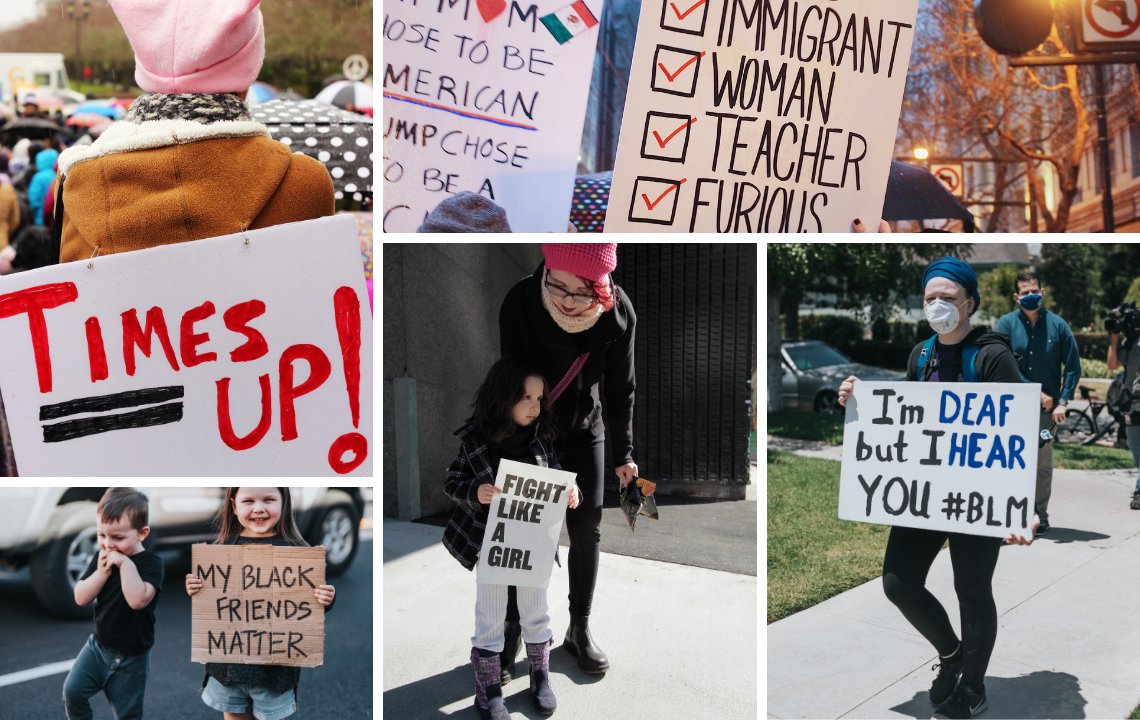Get analysis, insight & opinions from the world's top marketers.
Sign up to our newsletter.
The pandemic has highlighted the need to push the diversity and inclusion agenda harder and faster. Stephan Loerke, WFA CEO, explains why we need to accelerate our impact.

I’ve been fortunate to attend two panel sessions on diversity and inclusion over the last fortnight. Both have the ambition to bridge the divide between public awareness and corporate action but take different approaches to achieving it.
First up was a Curated Discussion* in the build-up to this year's Generation Equality Forum (GEF), a multi-stakeholder gathering convened by UN Women. Predominantly involving public bodies and NGOs, its aim was to discuss how to tackle deep-seated social norms and standards that perpetuate gender inequality in different contexts, including through media. The discussion was a lesson to me in what it means to be singled out as other or different. Panellists from Brazil and Congo had particularly heart-wrenching stories about the challenges they faced every day.
My next stop was a Diversity and Representation in Media Workshop convened by the World Economic Forum (WEF), a much more familiar part of my working world. This was attended by big businesses and focused on best practice and driving change within companies.
Both events were driven by the same observation: 25 years on, the UN Beijing Declaration of 1995, a historic commitment by heads of governments to achieve gender equality, is still far from being reality and progress is frustratingly slow.
What both these events had in common was the sense that this was an issue that needed to be tackled with urgency. My optimism comes from the fact that finally there seems to be real momentum to drive change.
The gender gap in labour force participation remains significant (26%) and isn’t moving, women tend to have more precarious jobs (as we’ve seen in the pandemic). Inequalities become even more shocking when other attributes such as race and ethnicity, sexual orientation and religion are also factored in.
In our industry, it’s ironic that while the media and ad industries pride themselves of being cool and future-facing, we are actually pretty old-fashioned and conservative. Too many creative teams are far from being diverse enough and the way diversity is portrayed in many ads has yet to change.
Couple this with the fact that the global pandemic is setting us back from the little progress we were able to achieve as an industry and we should all be worried. According to a new research from LinkedIn, an eye-watering 60% of female marketers have left or considered leaving the profession as a result of the Covid crisis. This figure is the highest seen in any industry and tells us something about how rampant gender inequality still is in marketing. And 42% of female marketers say Covid caused their career to be set back or put on hold.
What this should do is strengthen our determination to act. We have to drive change across the marketing industry. Now is the time for brands to be bold and show leadership.
Last year, at the start of the pandemic, we launched the WFA D&I Task Force. Our objective is to bring together brands from across categories and geographies and agencies that are committed to making real change. We want to use their unique expertise to create and curate the knowledge and resources needed to drive measurable change. All of us should be working to turbocharge these efforts.
To succeed we have to build bridges and reach out to others who share the same goals. There is much that WEF and GEF could collaborate on, just as we have done by working closely with the UN Women-led Unstereotype Alliance. GEF has shown lots of fire and commitment to driving greater awareness and WEF has lots of action and strategy but these two approaches will be much more powerful in combination.
To achieve real change beyond our own worlds, the trust deficit and mutual suspicion that have long existed need to be swept aside in the interest of our common goal of accelerating progress on diversity.
The need for change within the marketing industry can be promoted at a global level but real change has to be actioned locally because many of our diversity and inclusion challenges are deeply embedded in local culture. For us to succeed, we have to catalyse national initiatives - in partnership with our national association members – so that diversity can thrive everywhere.
Doing this is not just right morally, it is also very candidly in our self-interest. Our ability to make our industry more diverse and inclusive, both internally and in the content we create, will form part of what gives us license to operate in the future.
The way that we respond to this challenge will determine how welcome we will be in tomorrow’s society.
*As part of the journey leading up to the Generation Equality Forum (GEF) in Mexico City and Paris in 2021, UN Women hosted the GEF Curated Discussions, a series of multi-stakeholder, multi-generational gatherings to foster dialogue among gender advocates from around the world. The Curated Discussions aimed to provide insights on and address topics of relevance that will inform the GEF, including tangible recommendations for the design of GEF events and programming, as well as sharing of best practices to foster movement building for gender equality. The third session, held on March 1st, and to which WFA contributed, focused on ‘Transforming Gender Norms to Achieve Equality Now’.